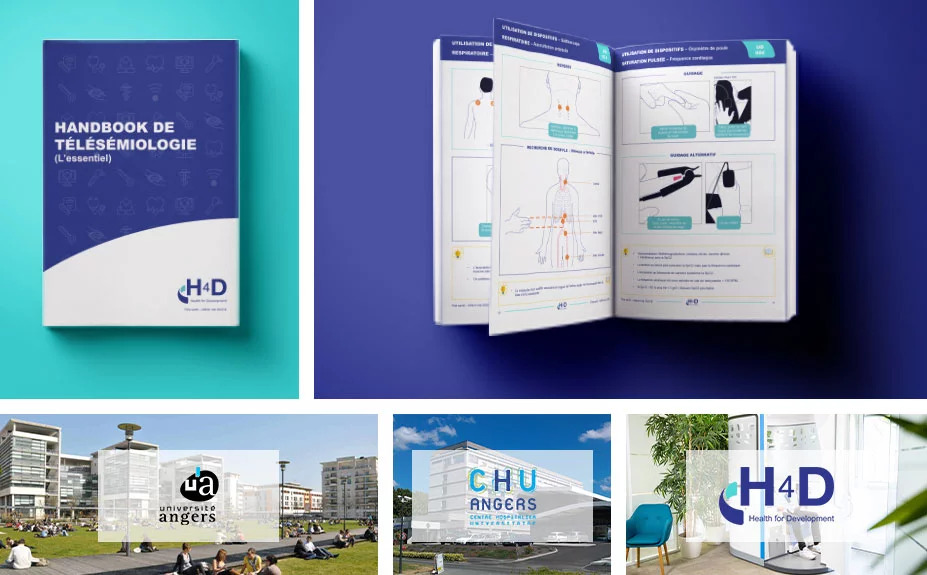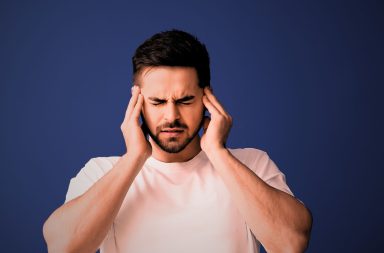A three-way partnership that launches a whole new field of expertise and study of semiology adapted to remote clinical practice

A pioneer of clinical telemedicine, H4D announces a partnership with the University of Angers and the Angers University Hospital to train future doctors in telemedicine and validate telesemiology procedures with scientific studies, a first in France and Europe.
A necessary democratisation of telemedicine
In 2020, the number of virtual medical consultations tripled, so the conclusion is obvious: the pandemic has played a major part in the acceptance of teleconsultations, both from a doctors’ and patients’ perspective. The first wave had already seen a boom in the number of
teleconsultations and the second confinement has further reinforced its value.
However, both patients and doctors are beginning to express reluctance in terms of its use: almost a quarter (24%) of doctors say they are dissatisfied with their teleconsultation experience, 40% of doctors have never provided teleconsultations because they do not have the necessary tools and 73% of French people think that telemedicine creates a greater risk of medical errors.
For H4D, a pioneer in the field of telemedicine for more than 10 years, it became a priority to establish a framework for this new medical practice by adapting semiology to remote healthcare, through the validation of medical protocols.
A brand-new field of expertise and study for the adaptation of new telemedicine practices: telesemiology
Telemedicine semiology or telesemiology is the adaptation of traditional semiology to remote video consultations, which can be aided by integrated measurement or examination devices.
The telesemiology methods developed by H4D in recent years now help clinicians carry out remote clinical examinations of patients. This self-examination of the patient, guided by the doctor, allows the latter to share some of their medical expertise and make the patient more involved in their healthcare.
After several years of teleconsultation activity with our connected medical pod, H4D doctors have gradually adapted their clinical practice. With our experience, we have learned to transfer some of our medical expertise to the patient to carry out the clinical examination for us. We have thus defined the concept of telesemiology and developed, among peers, a novel handbook incorporating self-examination protocols. This expertise is made available to medical researchers and doctors in training as part of this partnership, says Dr. Arnaud Wilmet, Medical Director at H4D.
A three-way partnership to establish a framework for telemedicine practice
It is therefore logical that H4D has approached the University of Angers and the Angers University Hospital and their pioneering simulation centre ALL’SIMS, based on “modern” healthcare simulation, with a shared ambition to develop telemedicine.
For the last 5 years, The University of Angers and the Angers University Hospital have made the choice to jointly develop a health simulation centre. It is an important location for networking and exchanging of skills in both training and research. All’sims enables new forms of learning to be explored, research to be developed and professionals to acquire new skills. This centre brings together a wide range of equipment for digital simulation, virtual reality or augmented reality that provides a true immersive experience. With the arrival of the H4D telemedicine pod, we are entering a new field of medical practice able to meet the challenges of the future. The University of Angers and its Faculty of Health will be able to take advantage of it, particularly the students who are the healthcare professionals of tomorrow, said Christian Roblédo, President of the University of Angers.
The All’Sims Simulation Centre was the ideal place to develop telesemiology. This innovation is part of AUH’s three core missions: teaching, in close collaboration with the UA, in order to train interns and doctors in this innovative new consultation practice; research, as telesemiology opens up a new field of study. In addition, H4D’s pod will enable research methods to be carried out on-site that few others are able to replicate. Finally, care: with trained teams and informed patients, telemedicine will eventually be a new treatment in the patient’s journey at the AUH, says Cécile Jaglin-Grimonprez, Executive, Director of the Angers University Hospita
Formalise telemedicine with specialised and coordinated training
This partnership aims to develop telemedicine practice to ensure optimal remote patient care, formalise telemedicine by creating specialised and coordinated training and, finally, academically validate the teleseminology methods developed by H4D through scientific
studies.
Several areas of protocol validation have been implemented: urology, cardiology, dermatology, geriatrics, digestive surgery or pre-anaesthesia.
Training for trainee doctors is planned with H4D’s Consult Station®, located within the ALL’SIMS simulation centre.



